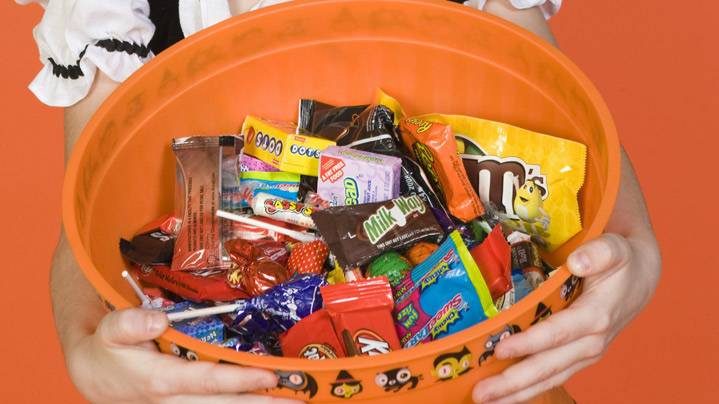TORONTO – A North Dakota woman is causing outrage over her plan to give trick-or-treaters she believes are obese a letter to their parents instead of candy.

“I just want to send a message to the parents of kids that are really overweight,” said the woman, identified only as Cheryl, in an interview with a local radio station.
“It’s just these kids, I see them and they are struggling to stay healthy and they want to play with other kids and I think it’s really irresponsible of parents to send them out looking for free candy just ‘cause all the other kids are doing it.”
Cheryl told Y94.com she feels like she is contributing to their health problem and that her neighbours “kids are everybody’s kids. It’s a whole village.”
The radio station said the controversial letter was emailed to the radio station and said the following:
“Happy Halloween and Happy Holidays Neighbor!
You are probably wondering why your child has this note; have you ever heard the saying, ‘It takes a village to raise a child?’ I am disappointed in ‘the village’ of Fargo Moorhead, West Fargo.
You(r) child is, in my opinion, moderately obese and should not be consuming sugar and treats to the extent of some children this Halloween season. My hope is that you will step up as a parent and ration candy this Halloween and not allow your child to continue these unhealthy eating habits.
Thank you.”
On social media, many called the letter inappropriate and an example of “fat shaming.”
YOUR THOUGHTS: Is the letter harmful or helpful? Share your thoughts on our Facebook page here.
Merryl Bear, director of the National Eating Disorder Information Centre in Toronto, said the letter is inappropriate in a number of ways.
“There is a presumption that this person has the right to make a judgment about an individual child and his or her parenting based on a subjective evaluation of their weight alone,” Bear told Global News.
“It also incorrectly simplifies the condition of obesity to overconsumption of sugar.”
According to Bear, the letter also makes the assumption that “free candy” is what drives parents of the children she stigmatizes as “obese” to allow them to join in the Halloween celebrations, rather than it being a time when a neighbourhood joins together to engage in a social event normally characterized as fun, light-hearted and full of goodwill.
“Getting candy may be a desirable outcome for most of us, but the experience of friendship, goodwill and playing with appearance is probably the bigger driver.”
Read more: The best and worst Halloween treats, as rated by nutritionists
Bear said research has shown that a significant percentage of children who develop eating disorders have a history of being more overweight than average.
“A sense of shame about their bodies contributes strongly to the development of eating disorders, which have the highest mortality rate of all psychiatric illnesses,” said Bear.
“Shaming and blaming individuals for their physical appearance increases the likelihood of that individual avoiding healthy behaviours—such as positive social engagement, enjoyable and sustainable physical activity and normal eating—rather than size itself being the cause of poor health. One cannot accurately judge the health and wellbeing of an individual based on their physical size.”
- Invasive strep: ‘Don’t wait’ to seek care, N.S. woman warns on long road to recovery
- Canadian man dies during Texas Ironman event. His widow wants answers as to why
- ‘Super lice’ are becoming more resistant to chemical shampoos. What to use instead
- Solar eclipse eye damage: More than 160 cases reported in Ontario, Quebec




Comments